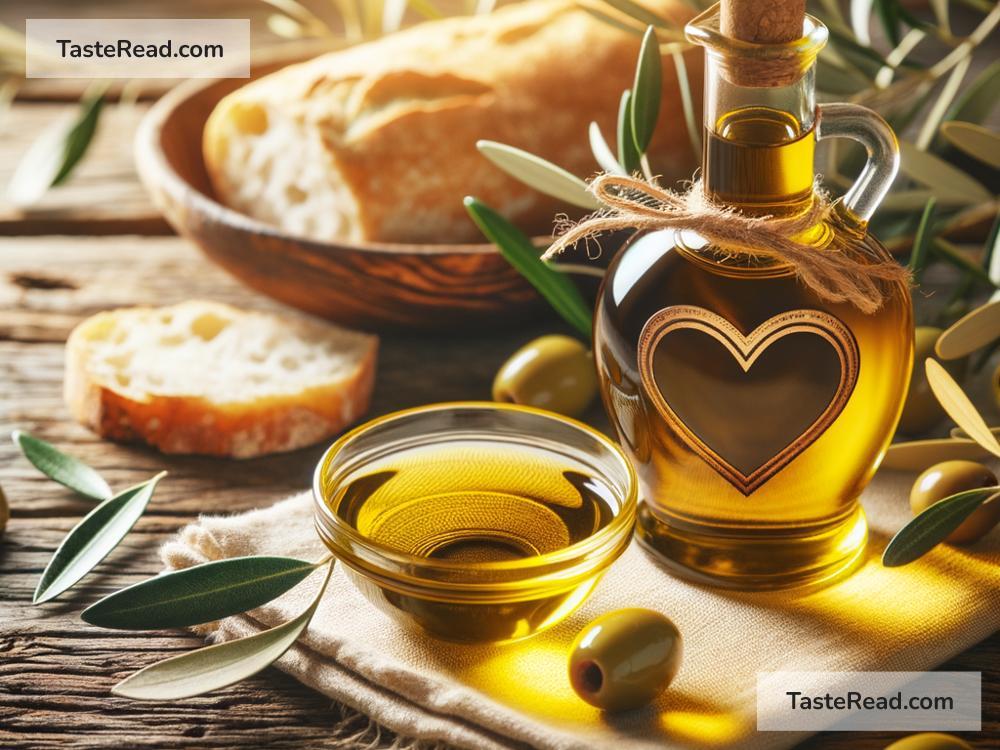The Surprising Health Benefits of Olive Oil for Heart Health
When it comes to food, there are very few ingredients that combine flavor and health as well as olive oil. Whether drizzled over a fresh salad, used for sautéing vegetables, or added to bread as a dipping oil, olive oil has become a staple in many kitchens around the world. But did you know this golden liquid does more than just make your meals delicious? It’s also a powerful ally for your heart health! In this blog, we’ll explore the surprising benefits of olive oil for your heart, why you should include more of it in your diet, and how to use it wisely.
What Makes Olive Oil Special?
Olive oil isn’t just ‘oil’; it’s so much more. Made by crushing olives and extracting their juice, olive oil is packed with nutrients and compounds that have been proven to improve overall health. The most famous of these compounds are monounsaturated fats and antioxidants, particularly a group called polyphenols.
Monounsaturated fats are considered the “good” fats because they help reduce harmful cholesterol levels in your blood. These fats also work to stabilize blood sugar levels, which is critical for preventing diseases like diabetes—another risk factor for heart disease.
Polyphenols, on the other hand, are plant-based compounds that act as natural antioxidants. They protect your body from damage caused by free radicals, which are unstable molecules that can harm cells and contribute to aging and disease. Together, these components make olive oil a one-of-a-kind food that supports heart health in multiple ways.
Olive Oil’s Role in Lowering “Bad” Cholesterol
One of the main culprits behind heart disease is low-density lipoprotein cholesterol, more commonly known as “bad” cholesterol (LDL). When LDL builds up in your arteries, it can lead to blockages, increasing your risk of heart attacks and strokes.
The good news? Olive oil can help! Studies have found that the monounsaturated fats in olive oil reduce levels of LDL while simultaneously increasing levels of high-density lipoprotein cholesterol, or “good” cholesterol (HDL). HDL helps transport excess cholesterol to your liver, where it can be safely removed from your body. This balancing act keeps your arteries clear and your blood flowing smoothly—a key ingredient for a healthy heart.
Fighting Inflammation with Olive Oil
Many people don’t realize that chronic inflammation is closely linked to heart disease. Inflammation occurs when your body’s immune system reacts to harmful substances, but when it lingers for too long, it can damage blood vessels. This increases the risk of atherosclerosis, a condition where your arteries harden and narrow.
Olive oil contains several compounds, including oleocanthal, which act as natural anti-inflammatory agents. In fact, oleocanthal works similarly to ibuprofen, a common pain reliever, without the side effects. By reducing inflammation, olive oil helps protect your blood vessels and keeps your heart in top shape.
Blood Pressure: Olive Oil’s Silent Victory
High blood pressure is often called the “silent killer” because it shows few symptoms but can lead to life-threatening conditions like heart attacks and strokes. Thankfully, olive oil can help reduce blood pressure naturally. Research has shown that people who consume olive oil regularly experience significant drops in both systolic (the top number) and diastolic (the bottom number) blood pressure levels.
Why does olive oil work so well? Its rich polyphenols help your blood vessels relax and improve their ability to function properly. This means your heart doesn’t have to work as hard to pump blood, reducing strain on the cardiovascular system. It’s a simple and delicious way to support a healthy blood pressure!
The Mediterranean Connection
If you’ve ever heard of the Mediterranean diet, you know it’s famous for keeping people healthy and promoting longevity. Olive oil is a cornerstone of this diet—and not by accident! In countries like Greece, Italy, and Spain, where olive oil is consumed daily, rates of heart disease are significantly lower compared to other parts of the world.
The Mediterranean diet focuses on whole foods like vegetables, fruits, whole grains, nuts, and lean proteins, paired with generous amounts of olive oil. This combination is great for your heart because it’s low in unhealthy fats and processed foods, which are major contributors to heart disease.
Choosing the Right Olive Oil
Not all olive oils are created equal! To reap the maximum benefits, choose extra virgin olive oil (EVOO). Extra virgin olive oil is the least processed type, meaning it retains more nutrients, antioxidants, and flavor compared to refined varieties. Look for high-quality EVOO with a deep color and robust flavor.
Also, be mindful of how you use olive oil. It’s best consumed raw or cooked at low to medium temperatures, as high heat can break down its beneficial compounds. Drizzle it over salads, roasted vegetables, or whole-grain pasta—or simply enjoy it with a slice of whole-grain bread.
A Heart-Healthy Conclusion
Olive oil isn’t just a tasty kitchen ingredient; it’s a heart hero in disguise. It supports cardiovascular health by lowering harmful cholesterol, reducing inflammation, and normalizing blood pressure—all while adding rich flavor to your meals. Incorporating olive oil into your diet is an easy and delicious way to show your heart some love.
Remember, as with any food, moderation is key. Olive oil is calorie-dense, so use it mindfully, as part of a balanced diet rich in whole foods. Start small by swapping less healthy fats—like butter or margarine—for olive oil, and you’ll be on your way to improving your heart health, one drop at a time!
Your heart deserves care, and olive oil might just be the surprising secret to keeping it strong and healthy for years to come.


